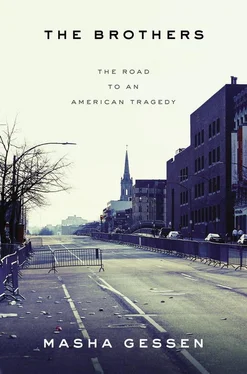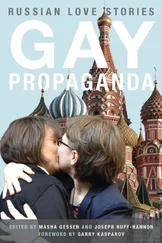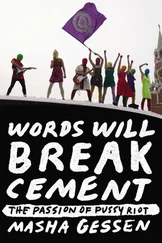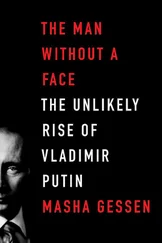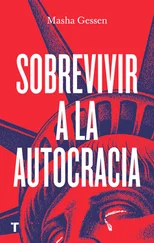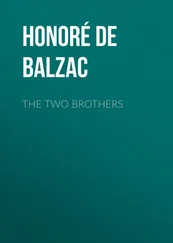In 1988, when the baby was not yet two, the Tsarnaev family was changed irrevocably. A quarter-century later, The Boston Globe would report that Anzor’s father had “died in an explosion,” as though in a blast that foreshadowed the blasts at the finish line of the Boston Marathon. The Tokmok tragedy was more mundane than that account implies. Working at the city dump, Zayndy found a large metal canister of the kind usually used for natural gas. This object could be useful not just as scrap metal but also for parts. Canisters like these were used in retrofitting cars to run on natural gas, and like everything that went into cars, they were in short supply. Zayndy placed it in his own car in order to move it from the dump. The container must have been leaking gas: when Zayndy started the car, it blew up. It was later impossible to determine, from the scraps of the car, whether the container had been in the trunk or on the backseat.
Liza moved to Frunze to live with Maret, who had graduated with her law degree and was starting what would be a brilliant career. Alvi took over the dump but had little use for the family home. Anzor and Zubeidat were now in charge of the two-story house in Tokmok.
• • •
MEANWHILE,the Soviet Union was imploding. Far away, in Moscow, Mikhail Gorbachev declared perestroika and glasnost. All over the vast empire, movements for independence and ethnic self-determination were taking shape. Some struggles were beginning to lead to bloodshed. In Tokmok, glasnost—the gradual softening of censorship—meant that video-screening salons started opening. They were not glamorous affairs, just plain rooms with a videocassette player and a screen no larger than those found in many American living rooms, but the movies they showed were more colorful, brighter, and faster than anything Tokmok had ever seen. Zubeidat and her friends liked the Bollywood films that were flooding Soviet television and the newly minted salons. Anzor and the other men might secretly have liked them as well; openly they acknowledged loving only Police Academy . In any case, whether or not they were ever dubbed “the Swans,” as Zubeidat would claim, the couple continued to be so dramatically affectionate with each other that once their friends were exposed to Bollywood sappiness, they started calling them “the Indians.” And whatever the men’s taste in movies, certainly they liked that they now had a place to gather outside their homes and backyards: they loitered outside the video salons before and in between the irregularly scheduled screenings, smoking and talking about their plans for the future, which was starting noticeably to change.
The Soviet Union was gradually opening its borders, and this meant that the Germans of Sakhzavod left. Kyrgyz families moved into their houses, cutting down their neat little orchards and making the Chechens nostalgic for their old neighbors’ fastidiousness. More of the Chechens were leaving, too. Anzor’s last remaining relative in Tokmok, Zayndy’s first cousin Jamal, who in accordance with custom had become the male authority figure for Alvi and Anzor after their father’s death, sold his house in Sakhzavod and moved to Grozny. He was becoming an entrepreneur, which was the thing to be now.
There was suddenly no limit to what you could do. One Chechen man, Ruslan Zakriev, bought a city park in the center of Tokmok. For about a year he thought about what to do with it. Then he bought some equipment from an unfinished amusement park and turned Tokmok’s city park into an amusement park with old-fashioned carousels and a creaky roller coaster. He took to wearing a white cowboy hat, belted jeans, and brown pointy-toed boots. Later, after the word “diaspora” had seeped into the Russian spoken here, he declared himself the head of the Chechen diaspora.
Public land was no longer public, it seemed, but was a source of private money. Alvi managed to convince somebody that the old quarry beneath the town dump was still full of copper or aluminum or both. Excavators came and found nothing, but by that time Alvi was gone with the money.
Two of Anzor’s closest friends, Semyon and Alladin Abaev, became long-haul truck drivers: now that the borders were open to imported goods and private businesses were allowed to buy and sell them, truckers were in high demand. Eventually each would buy his own German-made MAN truck, and a house with a yard large enough to park it.
Some people could not figure out what to do. Anzor’s other closest friend, Badrudi Tsokaev, had worked all sorts of manual-labor jobs in the Soviet era and had done well enough to support his wife, Zina, and their four children. Peculiarly, the new capitalist system seemed to have little use for a jack-of-all-trades who lacked ambition, or a way of selling himself. Still, for Anzor and Zubeidat, Badrudi and Zina, who lived at the end of their block, remained authority figures. They were about a decade older, more experienced in the ways of the world and, both being Chechen, in the way that Chechens did things. Zubeidat went to Zina with questions on practice and ritual: How do you get the kids to sleep? How do you handle bedtime with two and then three toddlers? Zubeidat had given birth to two daughters after Tamerlan. Zina gave her practical advice rooted in custom; she told her, for example, that a Chechen boy past the age of seven would have to have his own bed—and extensive praise. Zubeidat’s children, especially the boy, continued to be perfect: always impeccably dressed, polite, quick to get out of the way whenever guests came to the house. Tamerlan, even at the age of five or six, had an obvious understanding of his role as older brother; he was responsible for keeping his sisters quiet when there were guests, and safe when his parents were out. Zina also encouraged Zubeidat to make sure the children prayed five times a day. Neither of their husbands had any interest in what little Muslim ritual had been passed on to their generation, but the women wanted to bring their children up right.
Anzor responded to Zina’s praise for his son by saying he would have Tamerlan marry her daughter. Zina would say, “No way am I letting her marry your son! Your wife is not Chechen.” Everybody would laugh.
Some people were perhaps too well suited for the new era. The brothers Alaudin and Aziz Batukaev, two other Sakhzavod Chechens, were on their way to becoming the organized-crime bosses of this part of Kyrgyzstan. They had many trades, but drug trafficking was the most important of them. Central Asian–grown marijuana had been moving into other former Soviet republics for decades, and Chechen crime groups were instrumental in setting up and maintaining those routes. Now they were also moving much more profitable drugs such as opiates from Afghanistan.
The Batukaevs’ backyard abutted the Tsarnaevs’, and another of the Batukaev brothers set up a car-repair shop there. Anzor became his apprentice: cars would be his business. He would buy cars driven over from Germany, fix them up, and sell them at an outdoor market on the outskirts of Bishkek, as the capital of Kyrgyzstan was now called. Mercedes-Benzes were especially popular, but Audis and even some Volkswagens also had their buyers. If you asked Anzor, he would certainly tell you that this business, unlike some others, was perfectly legal. All the cars had papers of some sort, and customs tax had been paid. Whatever money had to be slipped to customs officers to expedite the process was just part of the system. Chechens always had to pay—if you took the train from Bishkek to Grozny, say, you would be shaken down by customs and border officials half a dozen times along the way, and traveling by train surely was not illegal. In fact, many of the cars making their way from Germany to the former Soviet Union were stolen, or had been reported stolen for tax-evasion or insurance purposes, or were salvaged “sinkers”—cars with severe water damage that could not be sold in Germany and had been written off. The profit margin of Anzor’s business was the product of flaws that made the cars undesirable in Germany and his ability to rectify or mask those flaws.
Читать дальше
